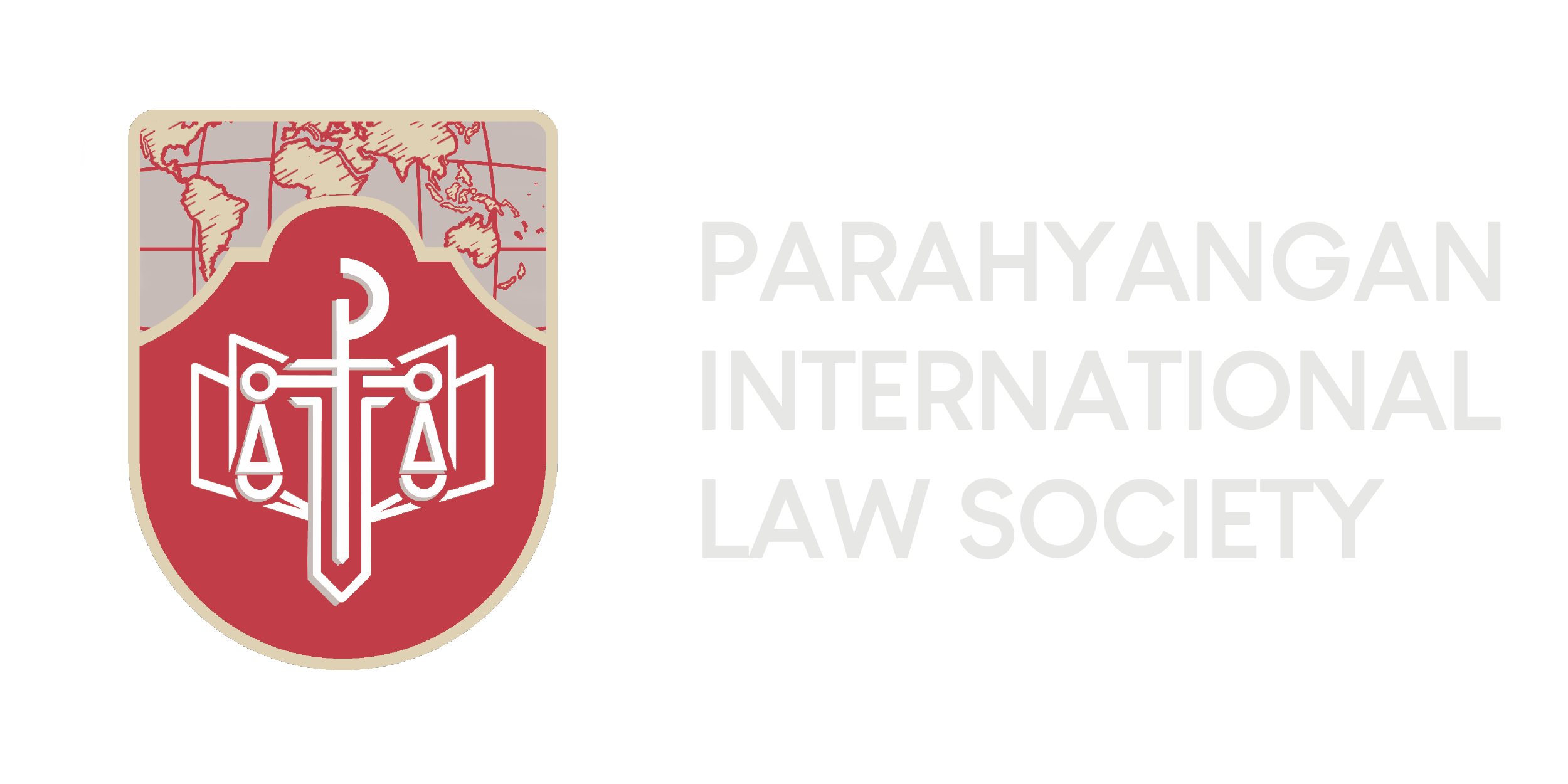Writers: Sabella Jane, Ignatius Vito, Nadya Theresia
Editors: Nadya Theresia
In the last article in this series, we have discussed why the fight over living space erupted and continues between Arabs and Jews in Palestine. One of the international community’s solutions to this decades-long feud was the UN Partition Plan in 1947, granting the West Bank among other territories to the Arabs. The plan was never accepted by the Arabs, who also opposed Israel’s independence since the day it was declared in May 1948. Before Israel declared independence, Jews had started building settlements in 1909 throughout Palestine in an effort to “lay the facts on the ground,” an approach intended to lay a stake in a particular area to ensure that it will be a part of a future State once it is established. But even with the Partition Plan in place, Israel continues to build settlements in Palestinian territory, including building a wall and continuously encouraged their people to move into the OPT, all of which have been deemed as flagrant violations of international law.
Failed Partition
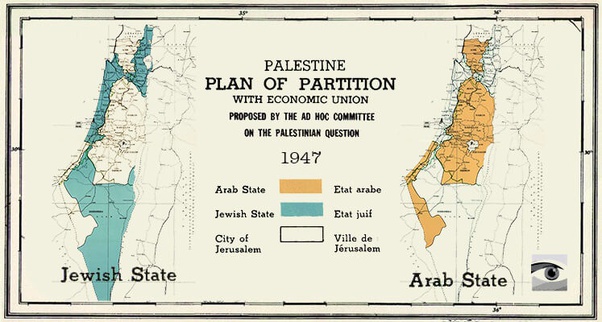
The territory separation as designated in the UN Partition Plan came into effect when Britain’s mandate over Palestine ended in 1948. The United Nations General Assembly Resolution 181 divided Palestine into 3 sections. The Jewish State was allotted approximately 56% of the total area of Palestine (in blue), although the number of Jews in Palestine were much less in number compared to Palestinian Arabs. The second section was allocated for Arab States (in yellow) and Jerusalem (in white) would be under the UN’s administration.
The partition plan was never accepted by Arab States. Quite the contrary to its aim, the partition plan triggered the First-Arab Israeli War in 1948, a day after Israel declared independence. But it was not until the 1967 Third-Arab Israeli War, known as the Six-Day War, that Israel’s control grew over Palestinian territory, and the map of the Middle-East changed. Israel successfully seized and occupied the West Bank and East Jerusalem from Jordan; the Sinai Peninsula and the Gaza Strip From Egypt; and the Golan Heights from Syria.
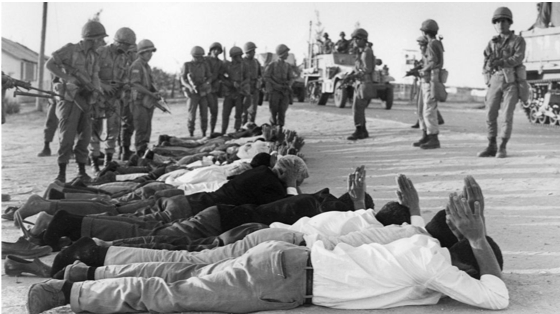

The Settlements
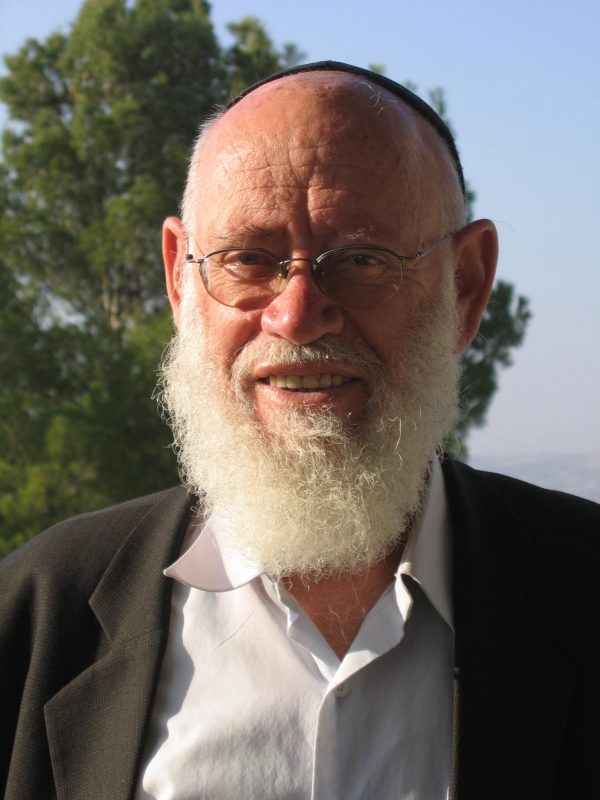
Israel was, at least initially, reluctant to let Jews stay in the West Bank. In fact, their initial permit was a temporary one, granted to Israeli Rabbi Moshe Levinger and some of his followers to stay in the Park Hotel in Hebron in the south part of the West Bank after disguising themselves as Swiss tourists in 1968. Although initially claiming that their stay was to celebrate Passover, Levinger refused to leave and demonstrated in the streets, stating their intention to stay permanently because “Hebron is Eretz Israel [biblical land of Israel] and Jews are entitled to have it.” Levinger’s movement, the Land of Israel or the Movement for Greater Israel operating on their belief that Jews have a God-given right over Palestine, has as its motto, “the Land is ours if we […] occupy it and build it up.”
Though Israel was reportedly reluctant to grant Levinger with the temporary permit, its actions say otherwise. For one, Israeli’s Labour Minister, Yigal Allon, visited Levinger’s group and voiced his support. Israel also announced that housing units would be built in Hebron to accommodate settlers, and was supported by the Israeli military. With this governmental support, temporary settlers eventually stayed permanently in settlements subsidised by the Israeli government.
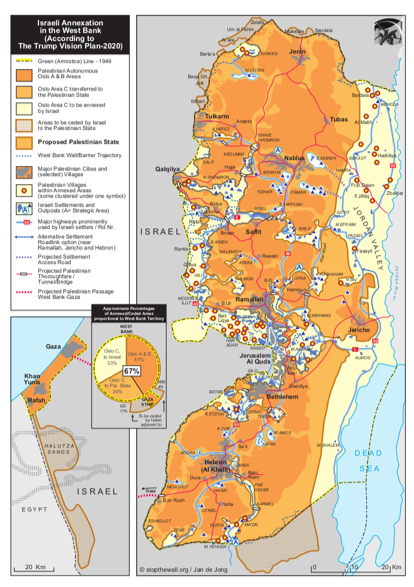
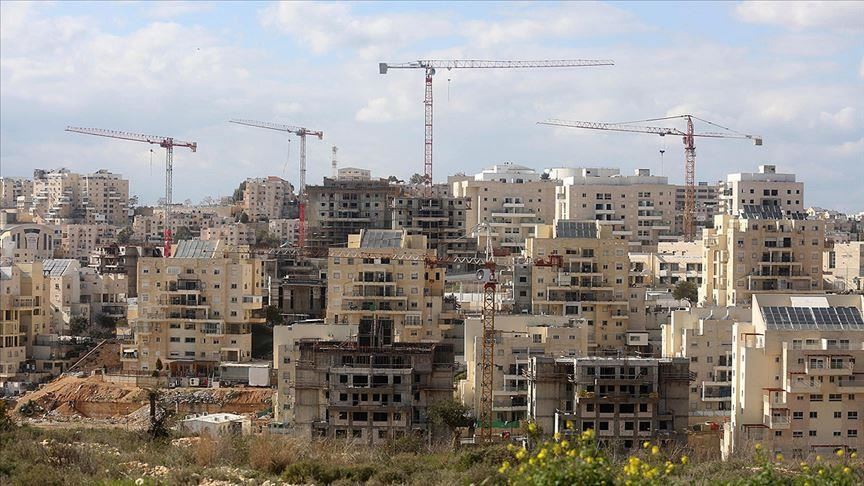
In the 1980s, Israel’s method to build settlements in the Occupied Palestinian Territory (“OPT”) was the declaration of State land, where the Israeli government would operate based on an Ottoman land law, which regulates that a piece of land left uncultivated for three years or with no proof of ownership will fall to the State. This method effectively rendered up to two thirds of land in the West Bank as the State’s, which were then used to build and expand their settlements. In 2014, Israel reclaimed 250 acres of land in the West Bank as State land. Several landowners have reported their ownership of the lands and their inability to cultivate those lands due to Israeli-imposed restrictions. These landowners were given 45 days to object to the State land declaration to the Military Appeals Committee, after which they could appeal to the Supreme Court. But the Supreme Court does not review the substance of their cases and more often allows the State land declarations. In one example, the Israeli Supreme Court held that Jews were the legal owners of the Al-Rajabi House, an Israeli settlement in Hebron. The Israeli government continues to support the building and expanding of these settlements.
In 2014, Israel allocated $172 million for Israeli settlements. Another $51 million were transferred by the Israeli government to the World Zionist Organisation to build and expand Israeli settlements in the OPT. Israel has also forcibly transferred Palestinians out of the West Bank and repeatedly demolished Palestinians’ properties to expand their settlements there.
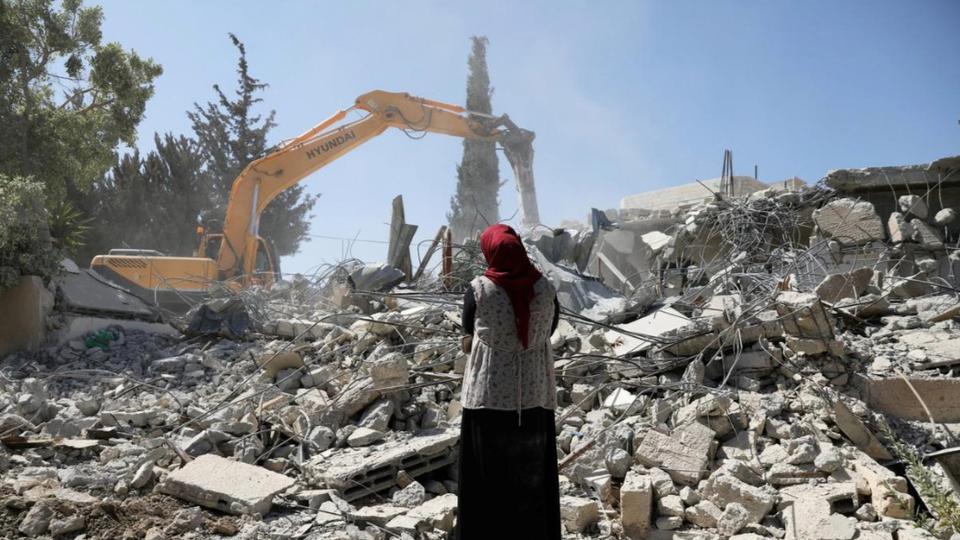
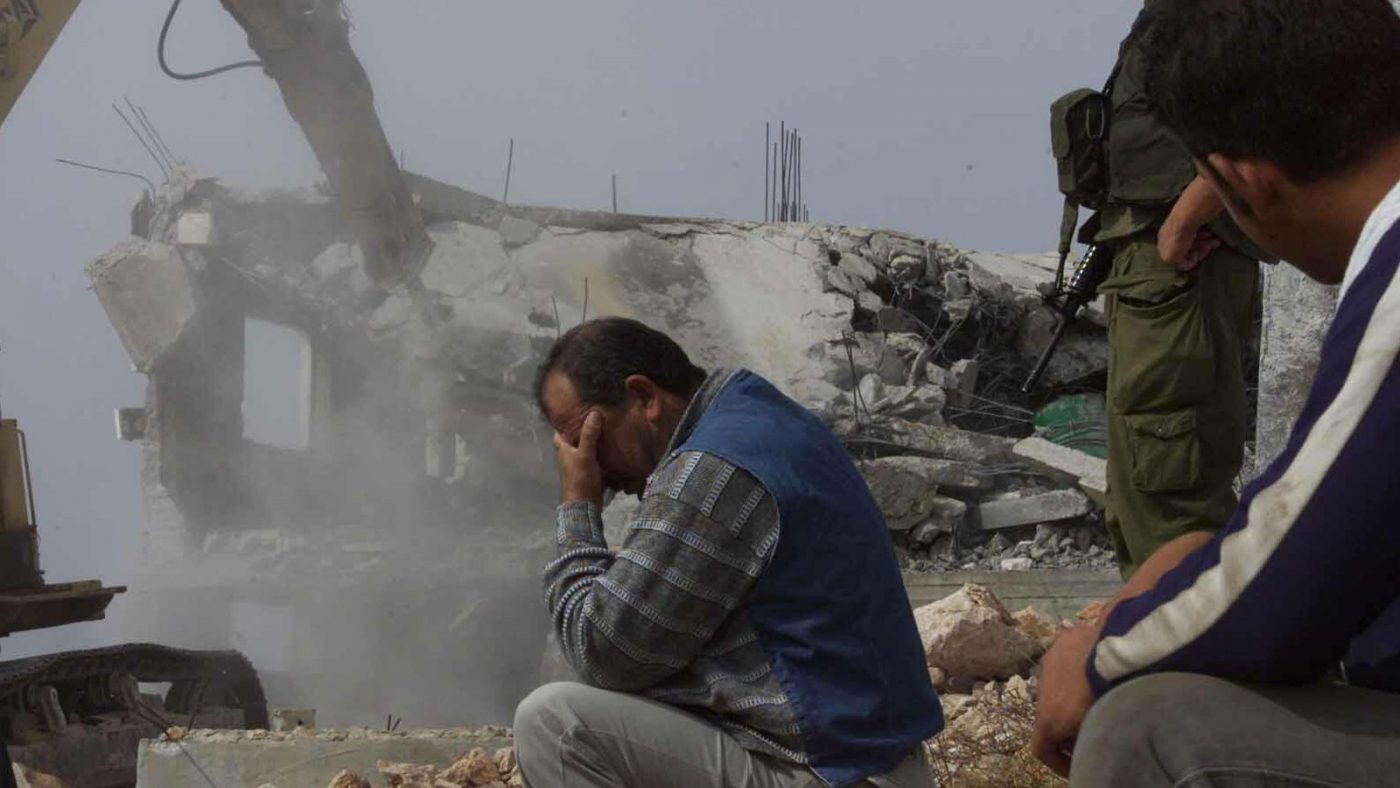
Not only in the West Bank, Israel has also built settlements in East Jerusalem and the Gaza Strip. But these settlements in Gaza were too difficult to protect as Jews only made up 1% of the population in Gaza, and in 2005 Israel removed all 8.000 settlers from the Gaza Strip, stating that “it was never Israel’s intention to rule over a large Palestinian population.” Despite this, plans for settlement expansions continue until today. In 2019, Israel approved plans for the building of 9.300 new housing units in the West Bank, and 400 units in East Jerusalem. Today, there are 132 Israeli settlements built by the Israeli government in the West Bank alone, and the Israeli government continues to encourage Israelis to move and stay in the settlements they built in Palestinian territory. All the while, Israel continues to incite violence towards Palestinian residents around the settlements, including the Israeli settlers’ maiming and killing of thousands of Palestinian children, the government’s denial of the right to access healthcare, raiding a COVID-19 testing clinic, and demolition of Palestinian homes.
The Wall
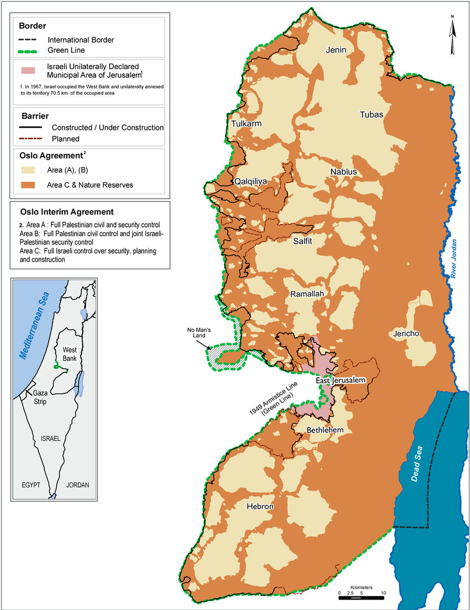
As regards violence, Palestinians haven’t exactly been idle, either. Palestinian terror attacks and suicide bombingsrose sharply in 2002. In response, Israel built a continuous barrier in parts of the West Bank and Jerusalem, claiming the barrier solely as a security measure and not a political one. The barrier consists of: a fence with electronic sensors, a ditch up to 4 meters deep, two-lane asphalt patrol road, a trace road (a strip of sand smoothed to detect footprints) running parallel to the fence, and a stack of six coils of barbed wire marking the perimeter of the complex.
The barrier was planned to form one continuous line stretching 720 kilometers along the West Bank, however the completed barriers deviates more than 7.5 kilometers from the Green Line, an armistice line established in 1949 separating Israeli territory from the OPT, to incorporate Israeli settlements while encircling Palestinian population areas. The barrier itself did not encircle the whole of the West Bank. But rather, it cuts deep into the OPT, effectively annexing Paletinians’ territory in the West Bank. It leaves approximately 56,000 Palestinians to be encompassed in enclaves, almost completely encircled by the barrier. Approximately 5,300 Palestinians live in ‘closed areas’ between the barrier and the Green Line, where Israel requires permits of identity cards for Palestinians entering or exiting.
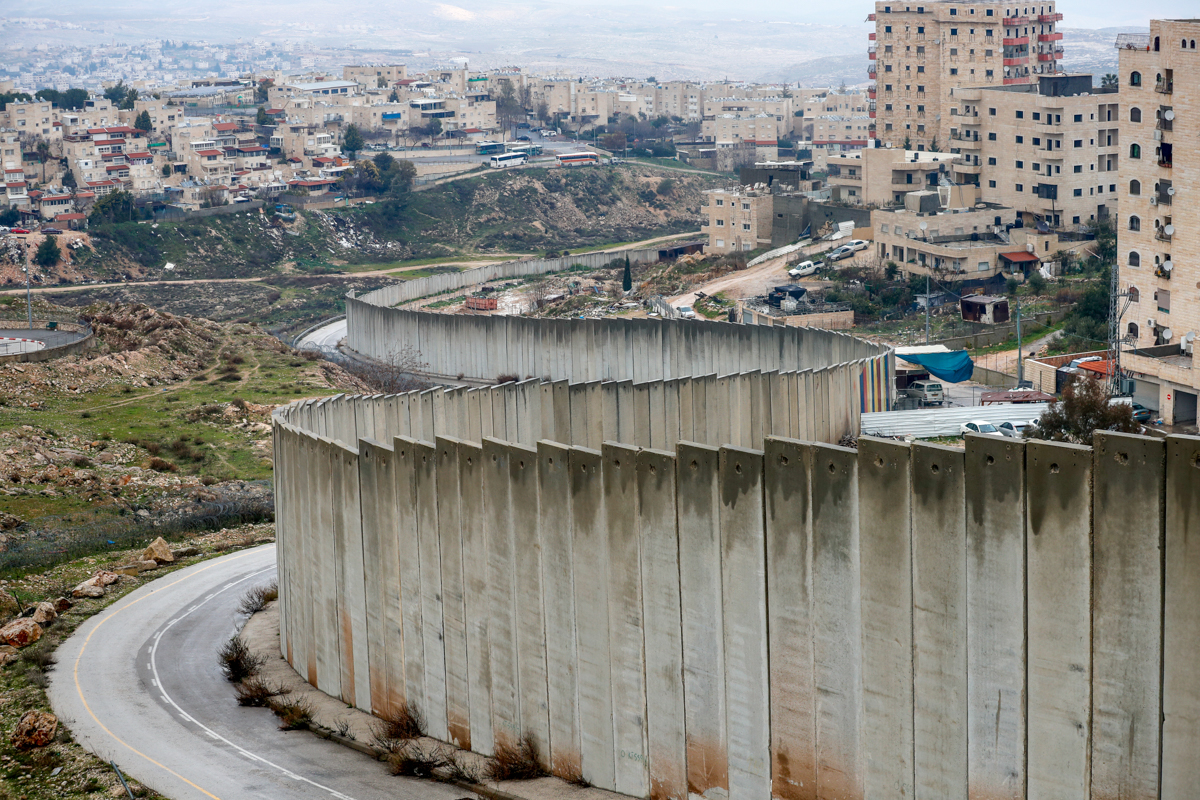

Flagrant Violations of International Law
The international community has never been ambiguous in voicing their disagreement with Israel’s settlements and the wall, and have in fact repeatedly stated that Israel has violated international law by building the wall and expanding their settlements in the OPT. An important piece of international legislation is Article 49 of the Geneva Convention Relative to the Protection of Civilian Persons in Time of War of 1949 (“Fourth Geneva Convention’‘), which strictly prohibits occupying Power to deport or transfer parts of its own civilian population into the territory it occupies. This provision has been affirmed by the International Committee of the Red Cross, UN General Assembly in Resolution 68/82, the UN Security Council in Resolution 799 (1992), and the International Court of Justice (“ICJ”) in its 2004 Advisory Opinion of Legal Consequences of the Construction of a Wall in the Occupied Palestinian Teritory (“Israeli Wall Advisory Opinion”) to apply to the OPT.
The Advisory Opinion
The ICJ exercised its advisory jurisdiction at the request of the UNGA through resolution ES-10/14 on “the legal consequences arising from the construction of the wall being built by Israel, the occupying Power, in the Occupied Palestinian Territory, […] considering the rules and principles of international law, including the Fourth Geneva Convention of 1949, and relevant Security Council and General Assembly resolutions.”
In the Israeli Wall Advisory Opinion, the ICJ very clearly stated that Israel’s policy and development practices involving the building and expansion of settlements in the OPT have no legal validity and are a flagrant violation of the Fourth Geneva Convention.
As regards the wall in the West Bank, the Palestine Liberation Organization has expressed its position that Israel’s construction of the wall is a violation of international law against the PLO’s territorial sovereignty and the Palestinians’ right to self-determination as it is a de facto annexation of Palestinian land. Israel, however, argues that the wall’s sole purpose was to enable it to effectively combat Palestinian terrorist attacks launched from the West Bank. Israel further argues that the wall does not change the legal status of the territory in any way, and is only a temporary measure that will cease to be necessary as soon as the terror ends.
The ICJ in its Advisory Opinion agreed with the PLO’s line of thinking, and held that Israel has breached its obligation to respect the Palestinians’ right to self-determination. Despite the ICJ’s opinion that the construction of the wall does not amount to annexation, the Court stated that it “cannot remain indifferent to certain fears expressed to it that the route of the wall wil prejudge the future frontier between Israel and Palestine, and the fear that Israel may integrate the settlement and their means of access.”
The ICJ also raised the issue relating to human rights violations, particularly concerning multiple provisions in the ICCPR. Israel has defended itself by stating that their derogation of the right to security and liberty of persons under Article 9 of the ICCPR is lawful as they have declared a state of emergency pursuant to Article 4 of the ICCPR. Indeed, Article 4 of the ICCPR provides States with the right to derogate so long as the derogation was made clear and communicated to the UN Secretary General. But Israel’s derogation only concerns Article 9 of the ICCPR, while the construction of the wall and associated regime impedes the freedom of movement of the OPT’s inhabitants (with an exception of Israeli citizens and those assimilated thereto) in relation to Article 12(1) of the ICCPR, a convention of which Israel is a member State with no objection about this provision. The ICJ also made clear that Israel also impedes the exercise of the right to work, to health, to education, and to an adequate standard of living as proclaimed in the ICCPR and the United Nations Convention on the Rights of the Child.
Article 49 of the Fourth Geneva Convention prohibits the transfer of an occupying Power’s population into the territory it occupies. This prohibition aims to prevent the alteration of a demographic composition in a particular territory as it could ultimately cleanse an entire ethnicity originating from that territory. In the context of Israel and Palestine, population transfer has deepened the conflict between them and added to the already complex problem. Seeing Israel’s actions, namely allocating hefty funds, forcibly evicting Palestinians out of their home, and demolishing Palestinians’ properties in the OPT, leaves no doubt that Israel has conducted a crime against humanity and violated the Geneva Convention.
As regards self-defense, the ICJ held that the inherent right to self-defense as expressed in Article 51 of the UN Charter only applies in cases of an armed attack by a State against another. Accordingly, Israel cannot claim self-defense as Israel never acknowledged Palestine as a State. Furthermore, the threat which justified the construction of the wall came from within the OPT, under Israel as the occupying Power. Consequently, the Court did not accept Israel’s self-defense line of reasoning and held that Israel has violated international law by building the settlements and the wall.
The UN Security Council
UNSC resolutions are binding upon member States to the UN pursuant to Article 25 of the UN Charter. In line with the obligations under Article 49 of the Fourth Geneva Convention, the UN Security Council through Resolution 446 (1979) has called for Israel to desist from taking any legal action that would change the legal status and geographical nature that would affect the OPT and the Palestinians inside it. Specifically, the UNSC has asserted its position that Israel cannot transfer part of its own civilian population into the OPT since the late 1970s. Then the UNSC reaffirmed this position in Resolutions 452 (1979) and 465 (1980).
The Security Council again opposed Israel’s settlements in the OPT through Resolution 2334 (2016) and reaffirmed that the settlements “had no legal validity”, constituted a flagrant violation under international law, and greatly obstructed the vision of peace between two States when they should coexist side-by-side with internationally-recognised borders. Condemning Israel’s actions as regards the wall and the settlements, the UNSC through Resolution 2334 (2016) aims to compel Israel to abide by its legal obligations and responsibilities under the Fourth Geneva Convention as the occupying Power by immediately and completely ceasing all settlement activities in the OPT, including East Jerusalem. The UNSC underlined that they would not recognise any changes to the Green Line, including as regards Jerusalem, other than those agreed by both parties through negotiations.
Evidently the UNSC has passed several resolutions clearly opposing Israel’s actions, calling for immediate steps to prevent all acts of violence against civilians, the strengthening of ongoing efforts to combat terrorism. The Council called on both sides to refrain from provocative actions in order to create necessary conditions for promoting peace. The UNSC has also called on all parties to continue to exert collective efforts to launch credible negotiations regarding the final-status issues in the Middle East peace process. Lastly, it called upon all States to distinguish, in their relevant dealings, between the territory of the State of Israel and the territories occupied since 1967.
The UN General Assembly
In line with Resolution 2334 from the Security Council, on 7 December 2017 the General Assembly adopted Resolution A/RES/72/86, opposing Israel’s settlements in the OPT, including East Jerusalem and the occupied Syrian Golan. The UNGA reaffirmed that Israel’s settlements in the OPT are illegal and an obstacle to peace, economic, and social development. The UNGA also demanded Israel to comply with its legal obligations as the occupying Power over the OPT, and called for Israel’s accountability over actions taken by Israel settlers in the OPT, and to all States and international organizations to continue actively make policies with regard to all illegal Israel’s measures in the OPT, including East Jerusalem, particularly to Israel settlements activities.
One of the policies urged by the UNGA for adoption by States is not to not render aid or assistance in maintaining the situation created by the illegal settlement activities. But Israel’s settlements in the OPT have received various reactions from the international community. Although the majority of the international community has evidently heavily criticised Israel’s measures in the OPT, the United States has been, and still remains, a long-standing strong ally to Israel. In fact, the US was the first to recognise Jerusalem as Israel’s capital in 2017, a move pivotal to the narrative of the issue since Jerusalem itself is a major contentious geographical location in the fight over living space between Jews and Arabs, as it holds great religious significance for both parties. More than that, the US provides hefty financial and military support for Israel, allocating an annual $3.3 billion in foreign military financing and has conducted military exercises and weapons development with Israel. Though recent developments in the US’ domestic political scene shows an indication that the US’ support might shift, President Biden’s administration continued to voice their support for the Jewish State.
Perhaps it is the US’ seemingly unwavering support for Israel that prompted the UNSC not to impose any consequences for its actions. In this regard, the UNGA stated, “the Security Council has spoken, at times sharply, about the defiance of Israel, but it has not imposed any consequences in the face of the ongoing obstructiveness of Israel. There is no other grave international human rights situation, and no other insubordinate State actor, in the world today about which the Security Council has spoken in such quantity and with such critical clarity, but acted with such passivity.”
A New Plan: Outright Annexation
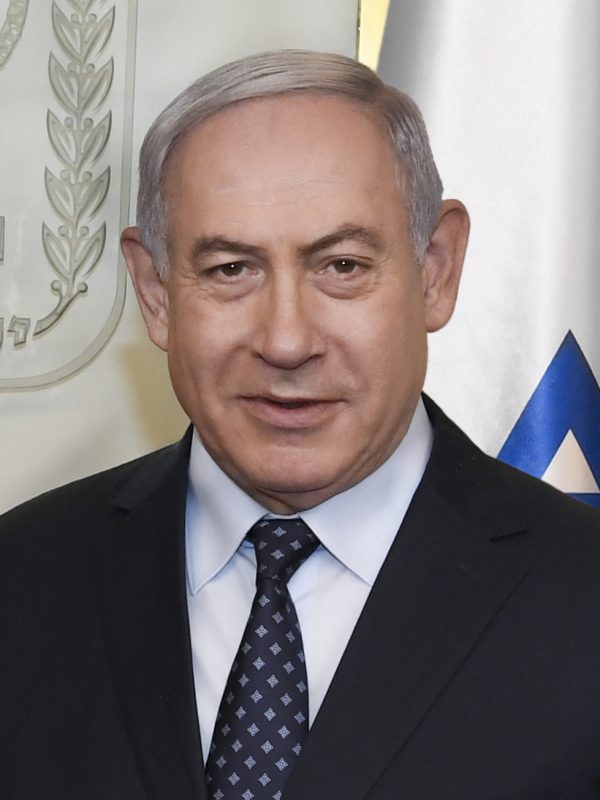
A fairly recent development in the Israel-Palestine issue is the former’s plan for an outright annexation of the OPT, namely parts of the West Bank and Jordan Valley. Prime Minister of Israel Benjamin Netanyahu has proposed plans to “apply Israeli sovereignty” to Jewish settlements in the West Bank and most of the Jordan Valley, a proposition previously supported by the US under Donald Trump’s administration. Trump also proposed the “Vision for Peace Plan,” a two-State solution which would grant Palestinians the territory in some parts of the West Bank to accommodate the already-built Israeli settlements. As part of the plan, Jerusalem would be given to Israel. Palestinian leaders swiftly rejected this plan.
Although Netanyahu’s plan to unilaterally annex the West Bank and Jordan Valley never came to fruition as it was never voted on by the Israeli cabinet, the international community has not been hesitant to voice its concerns. A statementsigned by 47 independent Special Procedures appointed by the United Nations Human Rights Council (“UNHRC”) has condemned this annexation plan as a violation of international law. Most notably, the experts stated, “the morning after annexation would be the crystallisation of an already unjust reality : two peoples living in the same space, ruled but with profoundly unequal rights. This is a vision of a 21st century apartheid.”
New Politics: the Case for Political Participation
As Netanyahu’s 15-year reign as Prime Minister in Israel halted and Naftali Bennett’s administration began, Israel’s practice of forming a new government with Mansour Abbas, representative of the United Arab List and the Islamic Movement in it, provided a much-anticipated new hope for peace between Israel and Palestine. A Muslim coming from humble beginnings, Abbas is of the view that political participation is the way towards peace. Indeed, the coalition formed between the United Arab List and Naftali Bennet and Yair Lapid has pledged over $15 billion for infrastructure, education, and initiatives to reduce crime in the Arab community. The Islamic Movement supports a Palestinian State while keeping close their identity as Arab citizens of Israel.
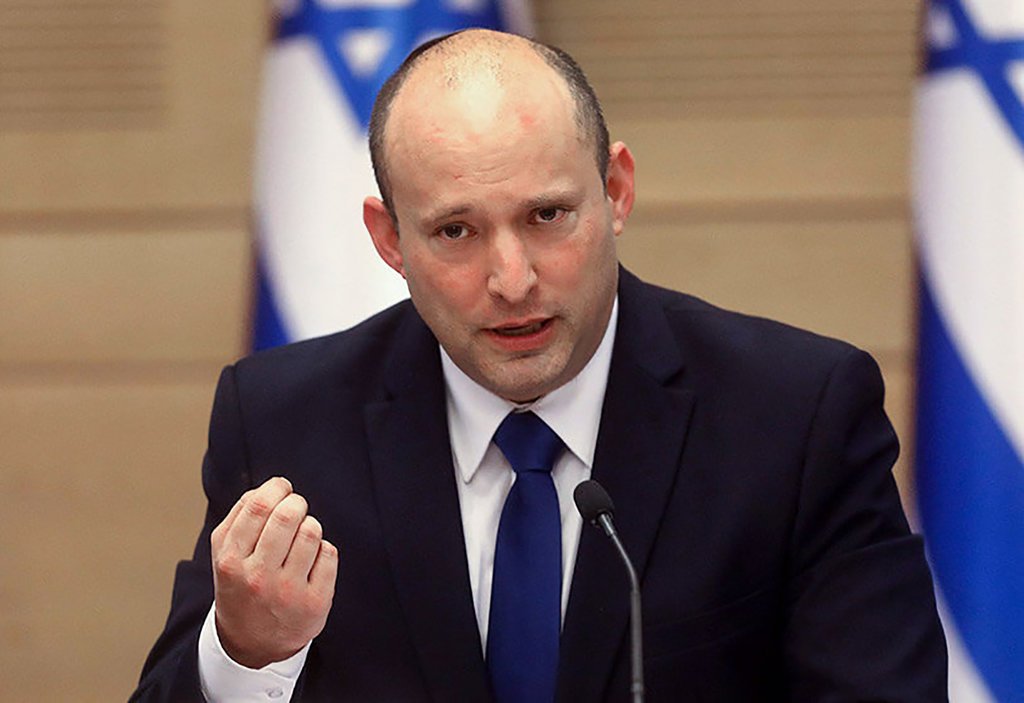
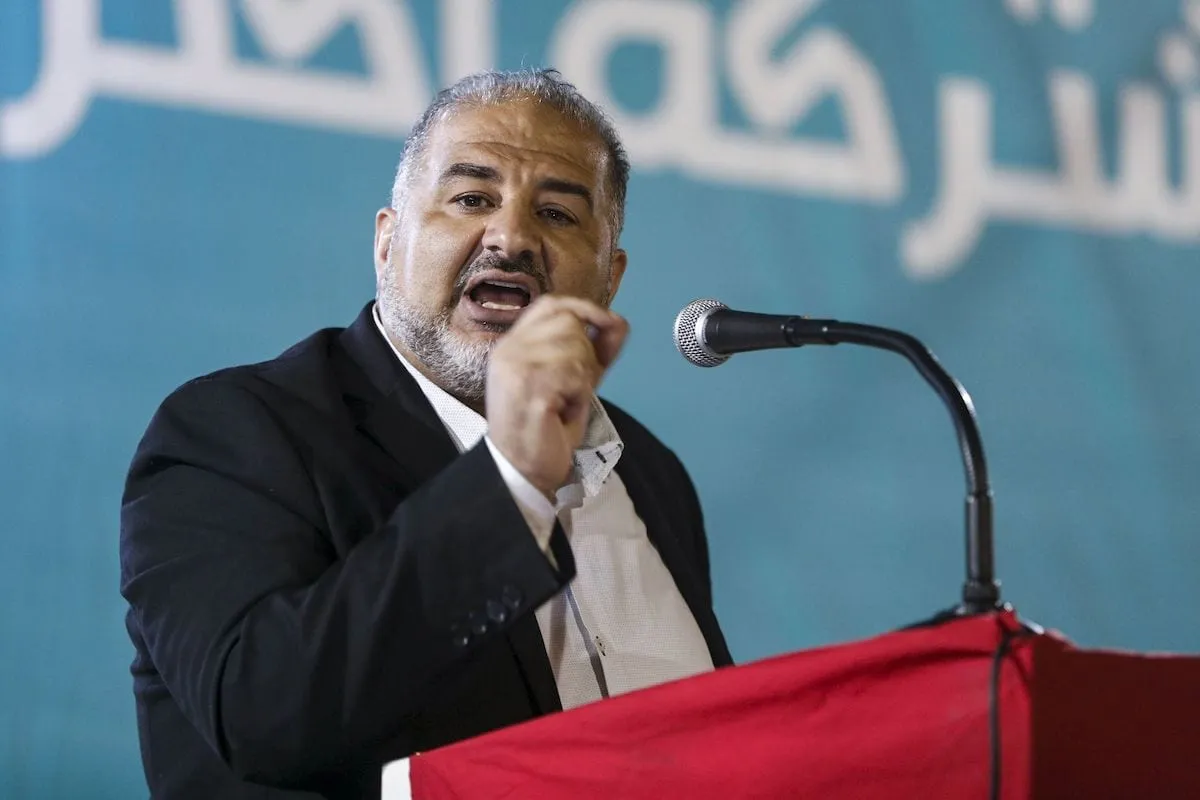
Many critics voiced their skepticism over what Abbas can achieve, but it offers a step towards progress in the relations between two peoples. Indeed, Abbas has in the past called on Israel to end their occupation over Palestinian territories because “what we have in common is greater than what divides us.” As we reviewed the hate, the violence, and the policies that have gone on since centuries ago between the parties, Abbas put it simply, “it is possible to do things differently.”
We sincerely thank Dr. Tristam Pascal Moeliono, S.H., M.H., LL.M., Adrianus Adityo Vito Ramon, S.H., LL.M. (Adv.), and Anna Anindita Nur Pustika, S.H., M.H. for the guidance they have provided as faculty advisors for this series.
This is the third article in PILS’ article series concerning the issue of Israel and Palestine. The next article will cover the refugee situation and the role of international organizations in the context of Israel and Palestine.
